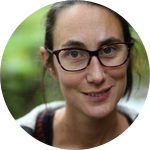Project Results
Fourteen species of perennial vegetables were tested for levels of nine nutrients needed to address common deficiencies. Composition was compared to a set of widely grown and marketed reference vegetables. For eight of the nine nutrients, at least one species had higher content than any reference vegetable, and in the case of Zn, ten species did so. Ten species had more than one nutrient concentration higher than the reference vegetables, with the leaves of Urtica dioica, Morus alba x M. rubra, Chenopodium bonus-henricus, and Rumex patientia especially nutrient-rich. Based on their high content of key nutrients, perennial vegetables are worthy additions to gardens and cuisine, and warrant further exploration for commercial production. Perennial and biennial kale varieties were compared, and despite some variation were found to have identical nutrient concentration rank profiles.
Testing the nutrient composition of perennial vegetables in Denmark, Sweden, and the United States
Eric Toensmeier, Karoline Nolsø Aen, Tycho Holcomb, Aaron Guman, Graham Unangst-Rufenacht, Eva Johansson, Aaron Parker, Annevi Sjöberg, Rebeka Törnqvist
Other
About This Project
Perennial vegetables are edible plants that regrow in the same place every year. They are a key component of sustainable regenerative food systems and previous research indicates that they are very nutritious and can contribute to healthier diets. However, there is a lack of comprehensive research regarding plant nutrient content. Our aim is to fill the knowledge gaps about the nutrients found in perennial vegetables, with a focus on varieties grown in colder climates.
Ask the Scientists
Join The DiscussionWhat is the context of this research?
Perennial vegetables are valuable in the transition towards healthier diets and sustainable regenerative agriculture, as well as storing of carbon in the soil. Currently, perennial vegetables are mostly grown in home gardens but there is an increased interest in growing them commercially. Great potential exists for market gardeners to sell many of the perennial vegetables directly to consumers as well as restaurants. They can become nutritious ingredients added to foods such as falafels, burgers etc. Gaining and sharing knowledge about their nutritional value is key to increasing interest in the cultivation and use of these vegetables. We are convinced that finding comparable research results of nutrients will give the perennial movement momentum to grow.
What is the significance of this project?
An important benefit of perennial vegetables is that they are nutritious. Like wild herbaceous plants and unlike annual vegetables, they haven't been selected for sweet flavors. Our recent scientific paper (Toensmeier), analyzed data of over 300 species of annual and perennial vegetables to determine nutrient levels needed to address nutrient deficiencies, including those missing from the “industrial diet” common in Europe. The study found that many perennial vegetables are much higher in these nutrients than common annual vegetables. However, several gaps were identified - for almost all perennial vegetables, data on many nutrients were missing. Other important perennial vegetables had no data available at all. This project aims to fill in identified gaps and encourage more research.
What are the goals of the project?
If we reach the goal of this fundraiser we will be able to test three of the following: hosta (Hosta sieboldii), linden (Tilia cordata), caucasian spinach (Hablitzia tamnoides) and scorzonera (Scorzonera hispanica). In order to compare results, the same analyses will also be done for a common species with well-known nutrition values (e.g. stinging nettle Urtica dioica). An accredited lab will analyze leaves and buds using standard nutritional analysis methods. We will compare our results with studies of perennial and annual vegetables.
Budget
The testing of nutritional levels at certified labs is very expensive. In order to be able to test as many vegetables as possible we have decided to exclude the cost of the time we put into this project. The team volunteers all labor for collecting samples and sharing the results.
Analysis cost to test one vegetable for calcium, iron, magnesium, zinc, cadmium, vitamin B6, vitamin C, folic acid, protein, beta carotene, and water content is $1050. Shipping and handling costs per vegetable are $50. With this budget we will then be able to test three perennial vegetables, and a more common species with well-known nutrition values (e.g. stinging nettle Urtica dioica) for comparison. Tests will be done at an accredited lab using standard nutritional analysis methods.
If we raise more money than our funding target, additional species and/or more nutritional analyses will be included in the evaluation.
Endorsed by
 Project Timeline
Project Timeline
The project starts in April 2021 and aims to be finished by October 2021. The project will begin harvesting and testing the plants at the peak of ripening in the spring and summer of 2021. When all lab results have been received, the data will be collated and a written summary will be published and made available to the global agriculture community.
Apr 01, 2021
Project launched - vegetables to sample selected
Apr 02, 2021
Project Launched
May 01, 2021
Initial samples for nutritional analysis taken and sent to lab
Jun 01, 2021
All samples submitted for analysis
Sep 01, 2021
Written summary of results sent out to backers
Meet the Team
Affiliates
Affiliates
Affiliates
Team Bio
This project is a part of an international network of projects to encourage cultivation of perennial vegetables. All team members have practical experiences of growing a wide range of perennials suitable for cold climates. Rebecka and Eva have conducted research on perennial vegetables and perennial agriculture systems. Eric and Annevi have written award winning books about perennial growing systems and their potential to provide nutritious and bio-diverse meals.
Eric M Toensmeier
Eric Toensmeier is the Director of the Perennial Agriculture Institute and a Senior Fellow with the Global Evergreening Alliance. He is a former Senior Fellow with Project Drawdown and a lecturer at Yale University from 2013-2020. He is the author of Perennial Vegetables and The Carbon Farming Solution, and co-author of Edible Forest Gardens. Eric is lead author of the 2020 study "Perennial vegetables: A neglected resource for biodiversity, carbon sequestration, and nutrition."
Eva Johansson
Eva Johansson is the initiator and project manager of the project Cultivable perennial vegetables for production. The purpose is to assess perennial vegetables from the professional grower's perspective and to raise awareness in perennial vegetables and thereby create demand among consumers, food craftsmen and growers. Four professional growers in Sweden participate in the project as partners. The project is ongoing 2019-2021.
Previously, she has been involved in community driven and citizen science ecological restoration projects in BC, Canada. http://kootenaynativeplants.ca.
She has many years experience in the organic agriculture community and has grown seedlings, vegetables and native plants.
Rebecka Törnqvist
Rebecka Törnqvist has a doctorate degree in natural geography with a special interest in perennial cultivation systems. She was the initiator and project leader of the research project Limitations and opportunities for forest gardening in the Swedish climate, and has also conducted a pilot study on the theme of perennial vegetables' growth, nutrient content and uptake of heavy metals at three different sites in southern Dalarna.
Annevi Sjöberg
Annevi has a Masters in Environmental Science and is a co-author of the book 'Skogsträdgården – odla ätbart överallt' (The Forest Garden – Grow edibles everywhere) which was awarded the Swedish garden book of the year 2018 and the book 'Fleråriga grönsaker – odla ätbart överallt' (Perennial vegetables - discover, grow, enjoy) published in 2016. Annevi Sjöberg develops a public demonstration garden "Mångfaldsträdgården" with many perennials suitable for cold climates. She also lectures and educates about perennial cultivation systems and perennial crops. She wants to draw attention to the benefits of growing perennial crops as well as finding out, and spreading knowledge of their nutritional content.
Project Backers
- 100Backers
- 105%Funded
- $5,258Total Donations
- $52.58Average Donation





